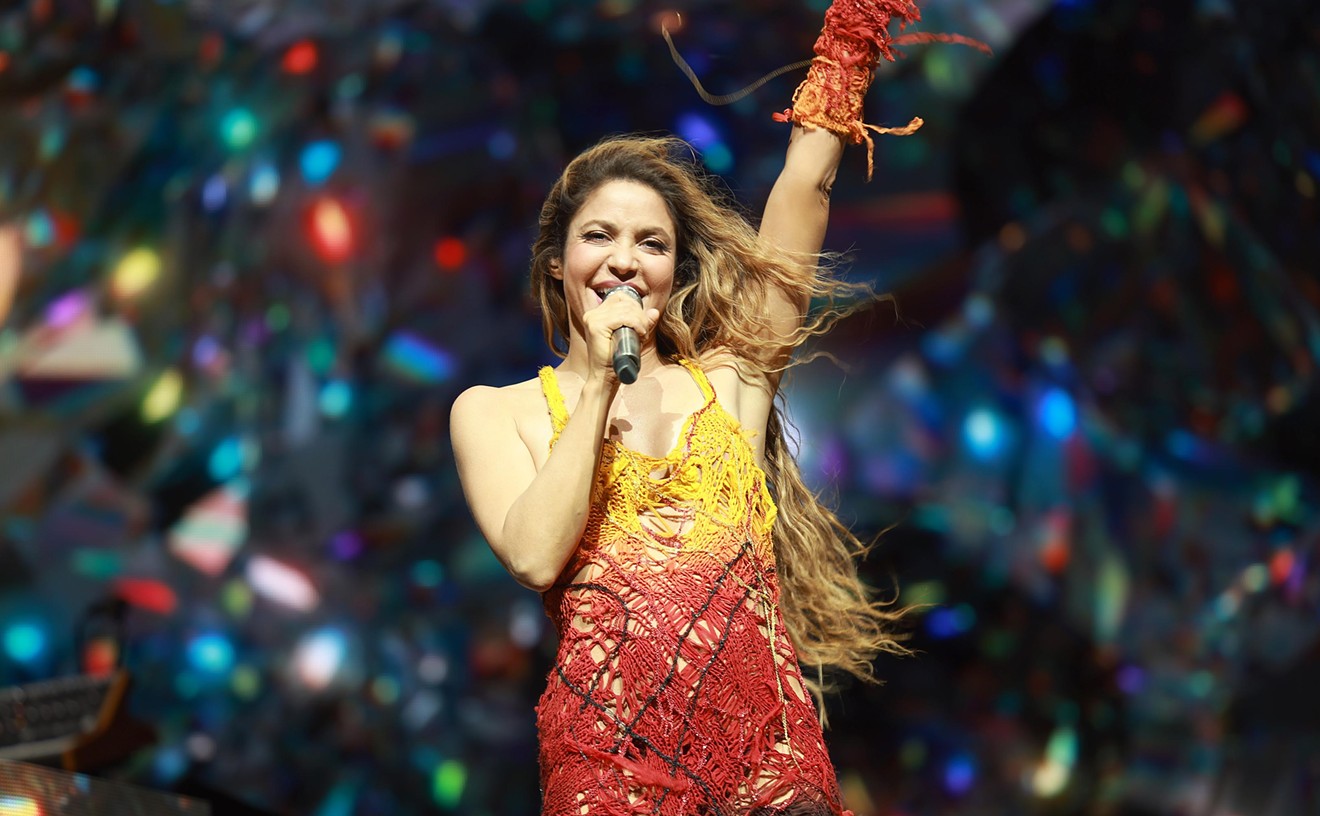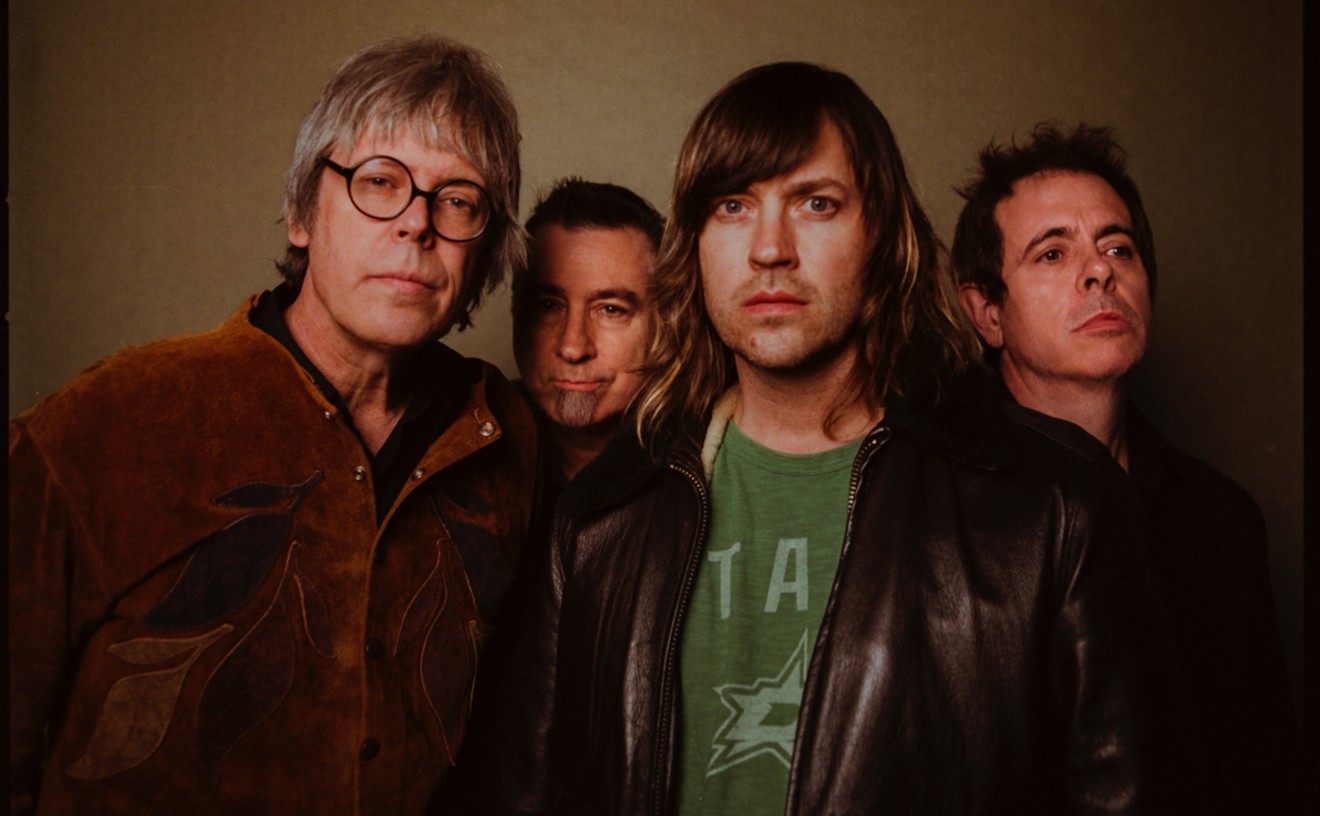When The Books released their first album, Thought for Food, in 2002, critics raved about the duo's unique sound, which stemmed from the fact that Nick Zammuto and Paul de Jong took found sounds (mostly from various cassettes the pair had purchased from The Salvation Army) and surrounded these fragments with a variety of instrumentation.
It's an organic, and often gorgeous, style. But, perhaps surprisingly, The Books have found an audience with fans of rock, even though their music is about as far from the mainstream as anyone could imagine. Perhaps, it's the band's relentless imagination that has garnered them enough fans to forge out a four-album career. Same goes for their persistence: Last year's The Way Out proved to be as accessible as The Books can get, even featuring songs with a (sort of) beat.
In advance of his band's performance at the Museum of Modern of Art in Fort Worth, cellist Paul de Jong was kind enough to speak with DC9 about his band's distinctive sound. Read our Q&A with him after the jump.
You're playing at the Museum of Modern Art. Why not play a more conventional venue?
For
us, it makes sense to play an art museum. So much of our show revolves
around video. Our show is based in the visual arts, so I think we are in
the right place. We play clubs and other musical venues and those have
obvious advantages, but museums allow us to present the video in a
better way. Plus, this show is open-air, and that presents other
challenges. It's an environment that's so difficult to control. We will
make it work because video is such an integral part of our performance.
We can go either way. The museum will draw our fans and also draw a
different audience. I think, for us, the museum might be the best place
to play.
Why do you think fans of rock and roll have gravitated towards your music?
When
we started 10 years ago, Nick [Zammuto] and I came from very different
backgrounds. Nick had grown up with classic rock and went into the
visual arts. I grew up with New Wave and punk and I am 10 years older.
Also, I have a very classical upbringing. We knew that we did not want
to make music in a conventional way. We wanted to incorporate our
interests in art in a way that an audience might be able to relate to. I
think there's no other way to say it other than we are visionaries. We
get an immediate emotional response from the people who hear our music.
We're very much like our listeners. The music is what we are. There is a
balance in it. We're not pushing it on people. We're playing with it.
When you first started playing such unusual music, did you ever think people would pay good money to hear it?
No,
but we were risk takers who wanted to combine our interests and
resources. Just making music was its own reward. We were a studio band
when we started. We didn't even have a budget. Nick knew the guy who
owned Tomlab, our first label. We sent the guy the first five songs we
ever made. He told us we had to make a whole album. We worked for a year
and released it. We weren't expecting anything to come of it. It took
off on its own. Those were the days when Pitchfork raved about us and we
started appealing to the college crowd. We were in the right place at
the right time. It was also the high point of file-sharing and people
were turning other people onto our music. We were very surprised. We
knew that we had to depend on record sales to bankroll our next record.
Even with the attention, we still barely had money to pay our heating
bills. All of our records are made with two mics and a PC. We don't go
to fancy studios. We don't have the money to invest in equipment. My
biggest investment is basically buying sampling material, rummaging the
50 cent bin at the record store.
How big of a challenge is it to play your material live?
I
think the reason it took us five years to tour was coming to grips with
how to make it happen live. It took us a while to put it together.
Plus, we found out that playing live was a way to actually make a little
money and continue making music. We really set out to create a show
that played to the strengths of our songs while adding visuals that
brought out new dimensions. We had to compensate for not being able to
recreate everything from the albums. We found ways to recompose the
songs live. Also, I think our last two albums have featured a bit more homogeneous instrumentation that is easier to present in a live setting. I
think the songs are strong enough to withstand a little
re-orchestration.
Have you ever tried creating a song live on stage?
No, that would be terrifying. We improvise on stage, but we like to do things in a highly controlled setting.
It is often said that The Books are in a genre all their own. Is such an honor?
Yes,
you bet. But descriptions of our music are something that other people
have done for us. We really wouldn't know. People like to categorize
music, so I feel lucky that we seem to have been left out of any genre. I
think it's a huge honor. I think people can still relate to us without
us being labeled as this or that.










